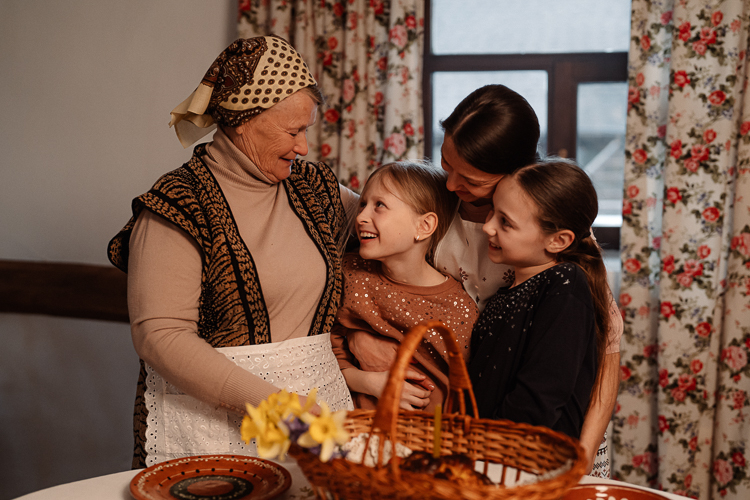An Easter campaign titled “Next to your dear ones” encourages the citizens in the country and in the diaspora to return to the native places and spend Easter together with the family. The goal of the campaign is to promote Moldova as a tourist destination and to attract attention to the cultural heritage and local traditions, such as egg painting, blessing of food in the church and washing of the face with red painted eggs, IPN reports.
The campaign is conducted by the National Inbound and Domestic Tourism Association (ANTRIM) in partnership with the Border Police and with the strategic support of the USAID-funded Moldova Rural Competitiveness and Resilience Activity.
“The campaign is designed to sensitize the people to the impotence of spending the Easter holidays next to the dear ones. This year, ANTRIM aims to inspire the people to connect to their traditions and culture, to take time and spend it with their families and to create valuable memories when they return home, to the villages and parents that wait for them,” said ANTRIM executive director Elena Stepanov.
“During these tumultuous times, it is important not to forget about our traditional values and to remember that the family is the basis of our society. That’s why I urge you to spend the Easter holidays by your dear ones and to strengthen these values and ties between us. Close to the dear ones is more than a generic phrase. It is a call to solidarity and love for the close ones,” said Minister of Culture Sergiu Prodan.
Together with the launch of the Easter campaign, the Border Police launches the e-Permit platform that will help locals, the diaspora and foreign guests to obtain permits online so as to have access to the border area and also access for floating means in the border area. ”The newly launched platform is designed to adjust our work procedures to the EU good practices that are based on modern technologies, simplification of procedures for obtaining permits of stay in the border area and on interoperability between different information systems. Such things ensure facilitated access to information for the citizens who want to visit tourist destinations that are close to the border,” said the head of the Border Police Rosian Vasiloi.

